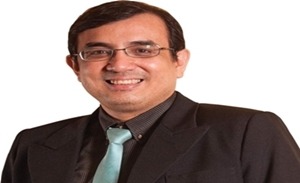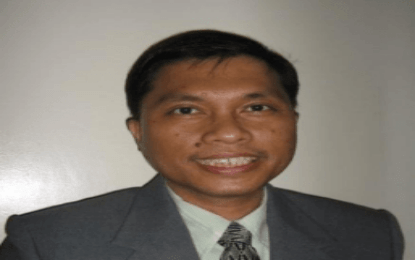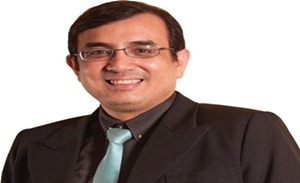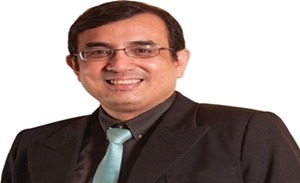ESPRESSO MORNINGS
By Joe Zaldarriaga

Under his guidance, Meralco achieved unprecedented milestones, clinching a historic 3-peat Company of the Year title at the IABC Philippine Quill Awards, scoring the only PR Team of the Year trophy bestowed at the Anvil Awards, and securing numerous honors at international and local communication awards.
Manong Joe’s leadership also extends as a respected member of the Board of Trustees for the Public Relations Society of the Philippines (PRSP), concurrent with his role as Chairman of the International Association of Business Communicators Philippines (IABC Philippines) where he also served as its President.
Manong Joe is a distinguished awardee of the medallion of honor and scroll of commendation from the University of Manila, owing to his years in public service as a communications professional. He shares his insights through columns in renowned publications, including The Philippine Star’s The Z Factor, and Philippine News Agency’s ESPRESSO MORNINGS.
As the month of May begins, we are once again confronted with the tragic and heartbreaking consequences of vehicular accidents — the unnecessary loss of lives that could have been avoided if not for negligence and utter recklessness.
On May 4, two people, including a five-year-old girl, died while four others were injured after a car crashed near the entrance of the Ninoy Aquino International Airport (NAIA) Terminal 1. This was due to a reckless driver, security lapse and a bollard that failed to do its job. Questions remain unanswered — from the unintended acceleration, to too many people in the airport entrance, to a bollard that did not do what it was intended to do.
Just a few days before the tragic incident, a bus driver reportedly fell asleep while driving and rammed into four other vehicles near the northbound toll plaza of Subic-Clark-Tarlac Expressway (SCTEX), leaving at least 10 people dead and around 30 individuals injured. Again, what caused him to fall asleep? Was he overworked and driving without rest? What was the condition of the killer bus?
My heart goes out to all the victims and their families. Those were preventable.
These incidents are only the most recent in a spate of road accidents that seem to have become the norm on our major thoroughfares, spotlighting the urgent need for systematic reforms to improve driver education, road safety culture, and strict government implementation of land transportation laws.
In 2024, road crashes killed over 2,700 people — about 35 percent more than the 2,030 fatalities reported the year before, according to the Highway Patrol Group. Of the more than 31,000 vehicular crashes recorded in 2024, around 87 percent or over 27,000 were caused by reckless driving, such as using a mobile phone while behind the wheel and drunk driving. The infuriating and disturbing reality is that this is a problem that could be prevented.
The unnecessary loss of lives due to preventable accidents is not only frustrating but more so heartbreaking. Addressing these issues require a multifaceted approach that includes stricter implementation of driver licensing policies and traffic rules, and widespread education to promote responsible driving behavior and accountability.
On the part of the government, there is a need to implement stricter and more rigorous testing procedures, both practical driving assessments and theoretical exams, for driving license applicants. Drivers with major traffic violation records should not be easily allowed to renew their licenses. Rather, they should be subject to reevaluation before being allowed back on the road.
Everyone who gets behind a wheel should adopt the mindset that they are responsible for the safety of others on the road just as much as they are responsible for their own safety.
Drivers must recognize that their actions have direct impact on their safety and that of others. Lives are at stake.
The government should also see that public utility vehicle (PUV) companies conduct regular maintenance of their respective fleet and have adequate policies to ensure safety. The recent SCTEX accident should prompt companies to take a hard look at their policies, particularly those that push drivers to exhaustion with profit as a priority over safety. These exploitative practices not only risk the lives of drivers but also of the riding public.
While the government plays a major role in addressing the widespread problem of road accidents, promoting a culture of road safety is and should be everyone’s business.
A good start to addressing these road safety problems is the recent pronouncement of Transportation Secretary Vince Dizon mandating drug tests for PUV drivers and reducing the driving hours from six to four hours. For trips lasting six hours or more, reliever drivers are required.
These are all crucial steps to reform our road safety culture to avoid more road accidents that claim lives.
If all of us adopt the mindset that we all play a role in promoting road safety, we can move towards a safer transportation environment — one that safeguards the lives of people and ensures that we all reach our destinations safely.





